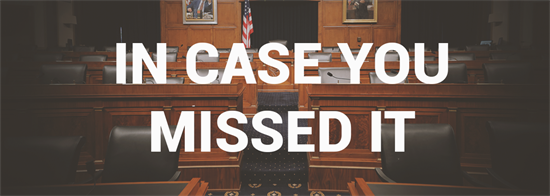Washington Examiner: Big banks wouldn't want GOP offer for fewer rules, CBO finds
Washington,
May 19, 2017
By Joseph Lawler House Republicans have advanced a bill, the Financial Choice Act, that would offer banks the option to get out of many of the new rules implemented in the wake of the 2008 financial crisis on the condition that they maintained a much higher level of capital. The premise behind the legislation, which the Financial Services Committee advanced earlier this month, is that if you required bank owners to have more skin in the game and to rely less on borrowed money, market discipline would improve, making regulations unnecessary. For the biggest eight U.S. banks, though, that option would not be appealing, the Congressional Budget Office determined in its cost estimate for the bill published Thursday. Doing so would require them to raise too much capital and wouldn't get them out of international rules, the office argued. Those eight banks – Citigroup, JPMorgan Chase, Bank of America, Goldman Sachs, Wells Fargo, Bank of New York Mellon, Morgan Stanley and State Street — are the ones that have been identified by regulators as "globally systemically important banks," meaning that their failure would threaten to bring down the financial system, making them effectively "too big to fail." In other words, the biggest U.S. banks likely would not get relief from the new banking rules in the legislation. In the budget office's estimation, most of the banks that would opt for the higher capital requirement would be small community banks. Democrats have sought to portray the legislation as a giveaway to big banks and a return to pre-crisis levels of risk. House Republicans, however, have argued that Wall Street does not like the bill. Although big banks wouldn't get the regulatory relief that comes with maintaining the higher capital level, they still would benefit from a significant amount of rule-cutting if the sweeping legislative package were to pass. The bill would undo the "Volcker Rule" that prevents banks from speculating with insured deposits, crimp the powers of the Consumer Financial Protection Bureau, institute a range of limitations on regulatory agencies, and much more. While the Choice Act is expected eventually to clear the full House, representatives do not expect it to be taken up as a whole in the Senate, where Democrats could block it with a filibuster. Thursday's budget estimate also suggested that the bill would save the federal government $24 billion over 10 years, mostly by eliminating the government authority for taking over a failing megabank. Taking away that power would save money, on paper, because the government wouldn't be on the hook in the case of a major bank failure. |


